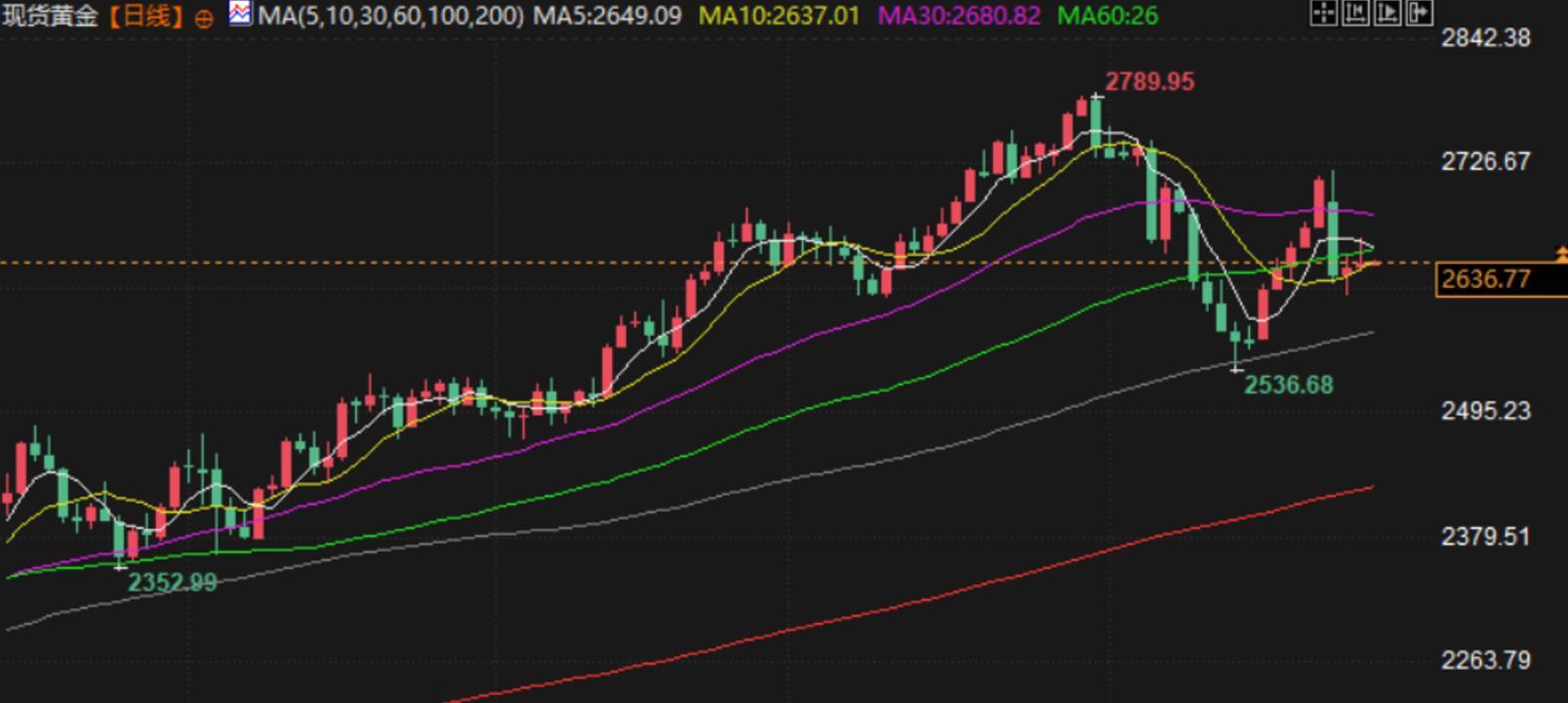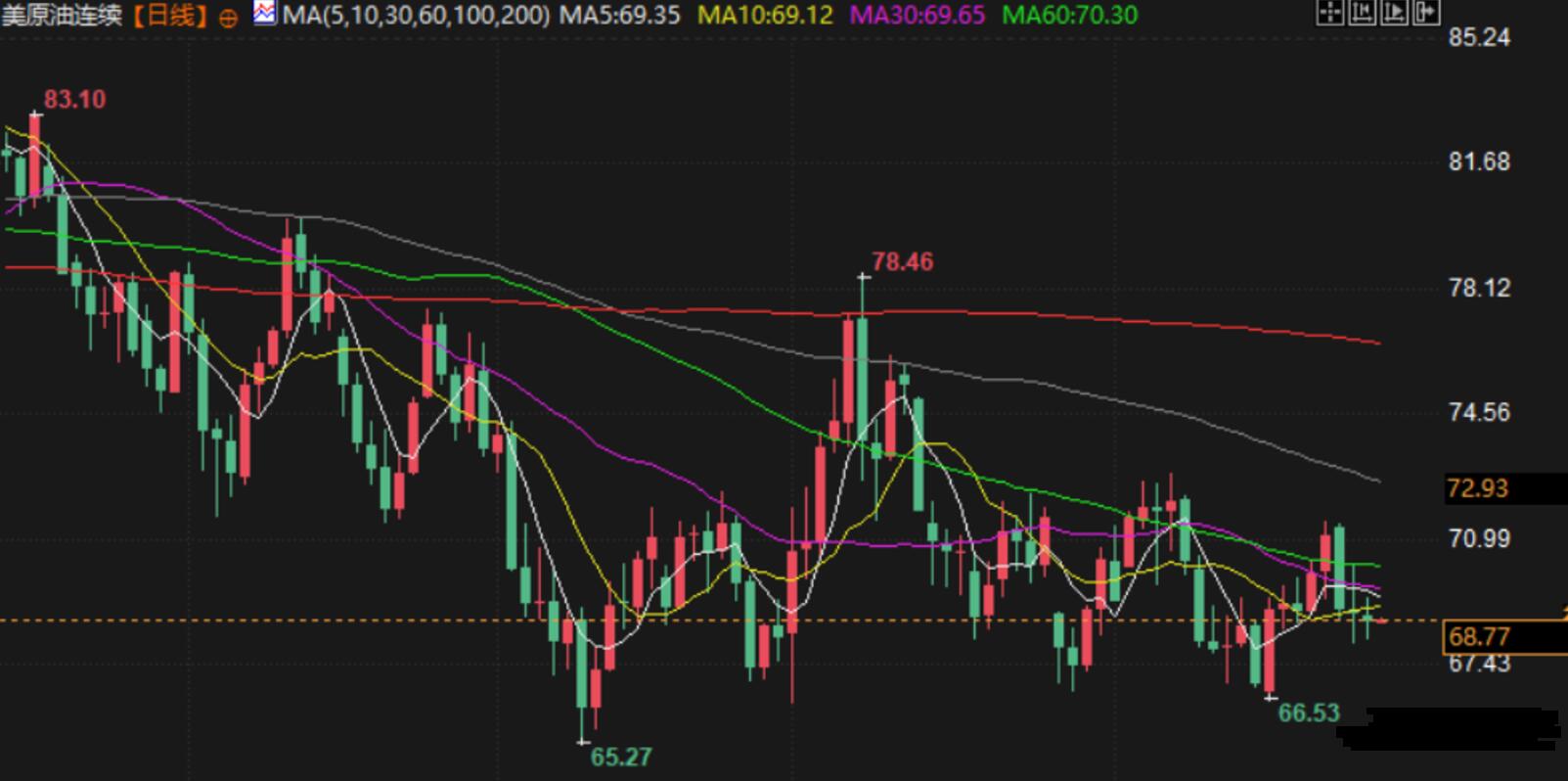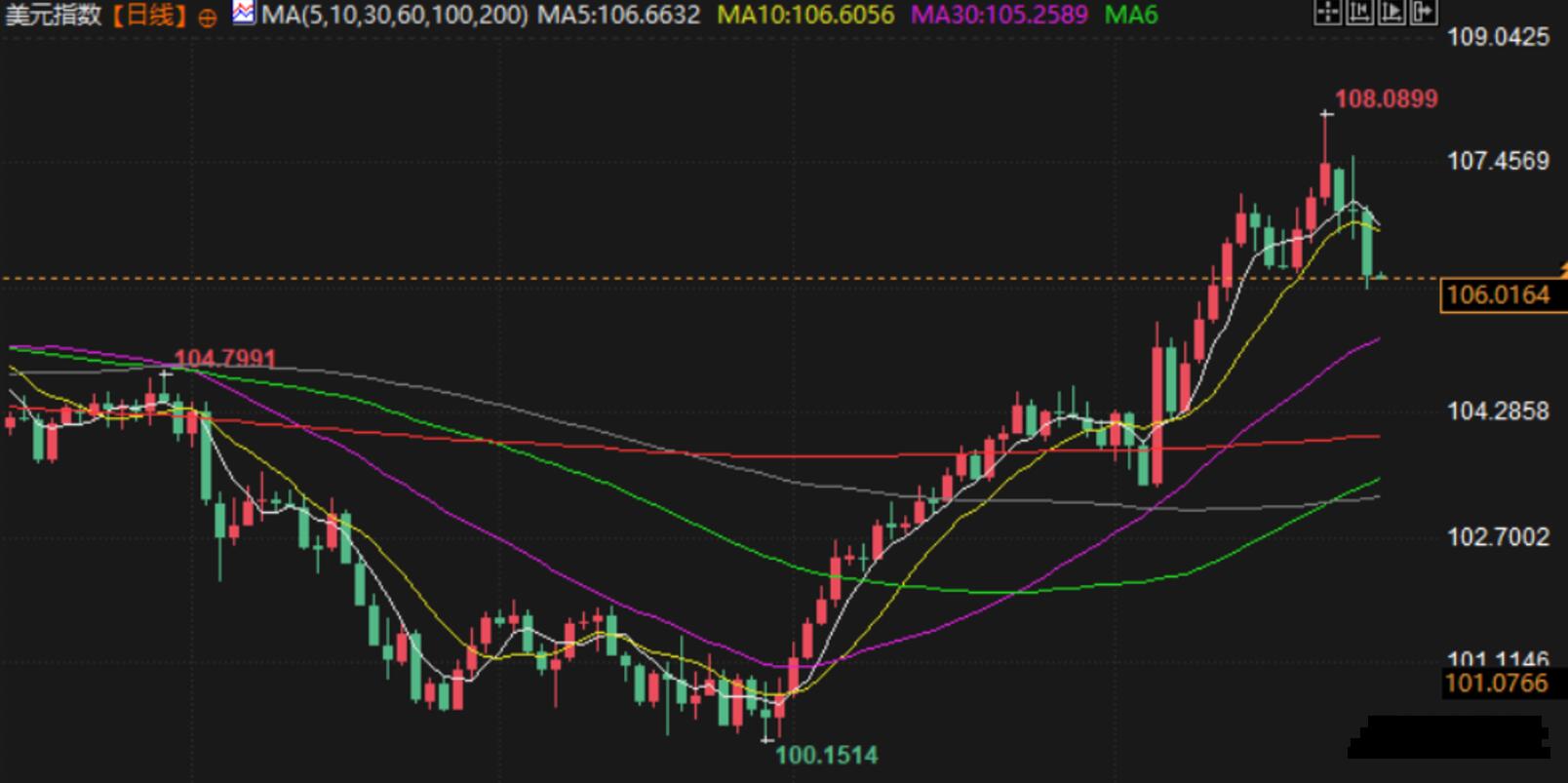After accepting an agreement mediated by the United States and France, Israel agreed to a ceasefire with Hezbollah in Lebanon, which came into effect on Wednesday. The real question is how long the ceasefire agreement can actually be implemented, "said Dennis Kissler, Senior Vice President of Trading at BOK Financial
The US dollar fell to its lowest level since November 13th during trading on Wednesday, dropping 0.74% in afternoon trading to 106.06. Compared to the two-year high reached last Friday, it has fallen by 1.9%. The market is digesting a series of data highlighting the resilience of the US economy, while investors assess the risk of President elect Trump launching a no win tariff. Few traders are interested in establishing or holding positions before the long weekend of Thanksgiving. The US market will be closed on Thursday, and the exchange will close early on Friday.
The
USD/JPY fell to a five week low, closing down 1.43% at 150.91. The weakening of the US dollar boosted the euro by 0.74% to $1.0564. The euro/dollar hit a new high in the past week, "said Amo Sahota, Executive Director of Klarity FX in San Francisco." Today's trend may be more due to some profit taking, at least for the United States before the long weekend. As I said, the dollar had a very amazing performance before and remains very strong.
In addition, the revised data shows that the year-on-year growth rate of the US gross domestic product (GDP) in the third quarter was 2.8%, which is in line with expectations and the same as the initial valuation released last month. However, this does not provide much justification for the
Federal Reserve to relax its policy again next month, although traders are still leaning towards it, slightly increasing their bets on the possibility of a rate cut to 67%.
Consumer spending data also did not provide support for interest rate cuts. The data shows that progress in reducing inflation in recent months seems to have stalled, despite the economy maintaining a steady growth momentum at the beginning of the fourth quarter. Peter Cardillo, Chief Market Economist at Spartan Capital Securities in New York, said, 'We all expected inflation to rebound, but it hasn't gotten out of control.'. This is the key point, which paves the way for a 25 basis point rate cut in December and a possible pause in the rate cut. But the reason for the suspension may not be inflation data, but the uncertainty of Trump's tariffs. I think the
Federal Reserve will become increasingly cautious.
The Personal Consumption Expenditures (PCE) price index of the US Department of Commerce increased by 0.2% month on month in October, which is the same as the uncorrected increase in September. The PCE price index increased by 2.3% year-on-year in October, and by 2.1% in September. Durable goods orders in October increased by 0.2% month on month, a growth rate lower than expected. The number of initial jobless claims last week was 213000, slightly lower than the previous week's revised 215000, indicating a stable labor market.
Some analysts believe that the inflation risks brought by tariffs and proposed tax cuts may prevent Trump from taking more destructive measures. Recently, the significant appreciation of the US dollar has greatly reduced the value of US dollar assets outside the United States, thereby increasing the rebalancing demand for selling US dollars at the end of the month, "said Sheryl Dong,
foreign exchange strategist at Barclays Bank
The Japanese yen performed well, benefiting from bets on Japan's December interest rate hike and position adjustments. The
USD/JPY fell below the 200 day moving average of 151.99, "Sahota said." I think this is also quite important in today's market, just technically. Analysts point out that Japan may not be affected by Trump's tariff policies, which has to some extent eased the pressure on the yen. Jane Foley, senior
foreign exchange strategist at RaboBank, said, "Japan has a significant advantage in addressing US trade concerns
She added that Japan is the largest overseas holder of US Treasury bonds and the largest provider of foreign direct investment to the United States.
According to an agreement aimed at ending hostilities along the Israel Lebanon border, a ceasefire between Israel and Iran backed Hezbollah came into effect on Wednesday. The war between the Middle East and Ukraine, although not the main factor affecting the
foreign exchange market on Wednesday, has always supported the safe haven status of the US dollar.
USC/CAD fell 0.18% to CAD 1.4027, hitting a four-and-a-half-year high of CAD 1.4177 on Tuesday. The exchange rate of the US dollar against the Mexican peso remained relatively stable, at 20.622, close to Tuesday's high, which is the highest since July 2022.
GBP/USD rose 0.81% to 1.267;
AUD/USD rose 0.34% to 0.6494;
NZD/USD rose 1.06% to 0.5896.
international news
The accelerated rise of inflation indicators that the Federal Reserve is concerned about supports the cautious stance of the central bank towards interest rate cuts The core inflation indicator that the
Federal Reserve focuses on accelerated year-on-year growth in October, providing more support for policymakers' cautious attitude in lowering interest rates. According to data from the Bureau of Economic Analysis on Wednesday, the core personal consumption expenditure (PCE) price index rose 2.8% year-on-year and 0.3% month on month. The increase of this indicator is largely influenced by the rise of stocks. Adjusted for inflation, consumer spending increased slightly by 0.1%, with a revised upward increase of 0.5% in September, consistent with the uneven demand throughout the year. The core PCE price indicator has increased at a three-month annualized rate of 2.8%, which economists say can more accurately depict the trajectory of inflation. These data support many recent comments from
Federal Reserve officials that they are not in a hurry to cut interest rates. They believe that as long as the labor market remains healthy and the economy continues to be strong, there is no need to cut interest rates in a hurry.
Trump Announces the Nomination of Keith Kellogg as Special Envoy for the Russia-Ukraine conflict
On November 27 local time, President elect Trump of the United States said that he would choose Keith Kellogg as the special envoy for the Russia-Ukraine conflict. Retired US Army Lieutenant General Kellogg served as Chief of Staff to the White House National Security Council during Trump's 2017-2021 tenure and as National Security Advisor to then Vice President Pence.
The Trump team considers the "three major" solutions to the potential Russia-Ukraine conflict
Two insiders said that in recent days, Michael Waltz, Trump's national security adviser, has been weighing several proposals to end the Russia-Ukraine conflict. Although the specific details of the strategy are still being formulated, Trump officials may push for a ceasefire as soon as possible to temporarily freeze the conflict during negotiations between the two sides. Firstly, there is the proposal of Kellogg, the candidate for the Russia Ukraine special envoy, that the precondition for continuing to provide military assistance to Ukraine is Kiev's participation in peace negotiations with Russia, as well as proposing a US policy of seeking a ceasefire and resolving the conflict through negotiations. At the same time, Ukraine's desire to join NATO will be put on hold for a long time to encourage Russia to participate in negotiations. The second proposal is supported by former US Ambassador to Germany Rick Grenier. Grenell had previously expressed support for the establishment of "autonomous regions" within Ukraine, although he did not explain in detail what this would look like. Another idea is to allow Russia to retain the areas it currently controls in exchange for Ukraine joining NATO, but few in Trump's circle seem willing to invite Ukraine to join NATO in the short term.
Four Trump nominated government officials say they received threats at home
At least four government officials nominated by President elect Trump have stated that they have been targeted by bomb threats or false emergency reports this week, which have led police teams to rush to their homes, sparking new concerns about political violence. No explosive devices were found in any of the incidents. According to a source familiar with the matter, Pete Hegseth, the Defense Secretary candidate selected by Trump, has been targeted by a bomb threat at his residence in Tennessee.
The United States imposes sanctions on individuals associated with the President of Venezuela
According to the website of the US Treasury Department, the United States has imposed sanctions on 21 individuals associated with Maduro, including members of the security forces and cabinet level officials. At the same time, new visa restrictions will be imposed on individuals who disrupt Venezuela's competitive and inclusive electoral process or participate in repressive actions. Including today's measures, the US Treasury Department has imposed sanctions on 180 current or former Venezuelan officials, and the US State Department has imposed visa restrictions on nearly 2000 individuals.
Canada's Labour Minister says unable to end postal strike due to significant differences on key issues
Canadian Labour Minister Steven McKinnon announced on social media on November 27th that there were "too many differences on key issues" between Canada Post and the union to reach an agreement and end the strike. McKinnon also announced that the special federal mediator has temporarily suspended mediation. McKinnon said, "The suspension of mediation activities is expected to allow both parties to reassess their positions and return to the negotiating table with new determination." McKinnon stated that he has requested both parties to meet in his office, and if both parties can "resume productive negotiations, the special mediator will re engage with both parties." Canada Post began a nationwide strike on November 15th, with about 55000 postal workers participating, resulting in the complete shutdown of Canada Post's operations.
Musk calls for the abolition of the US Consumer Financial Protection Board (CFPB)
Billionaire Elon Musk has publicly called for the repeal of the US Consumer Financial Protection Agency, highlighting the new threats that this long-standing thorn in the eyes of Republicans and business lobbying groups will face under President elect Donald Trump. On Wednesday, Musk posted on his social media platform X, saying, "Removing the CFPB and having too many duplicate regulatory agencies
Russian central bank: will stop purchasing foreign exchange in the domestic market from the 28th According to the International News Agency, the Central Bank of Russia stated that from November 28th to the end of 2024, it has decided to stop purchasing
foreign exchange in the domestic currency market as part of the normal operation of the Ministry of Finance in accordance with budget rules. The regulatory authorities stated that this decision is based on the need to calm down financial market volatility. The Russian central bank will continue to sell currency as part of supplementing and utilizing the National Wealth Fund (NWF), selling 8.4 billion rubles per day. The Russian central bank plans to implement the original
foreign exchange purchase plan again in 2025.
Secretary of Commerce of the United States: The American Institute of Artificial Intelligence Security cooperates with OpenAI and others to carry out voluntary pre deployment testing of AI models
Raymond Edmund, the US Secretary of Commerce, said that the US Institute of Artificial Intelligence Security, in cooperation with OpenAI and Anthropic, carried out voluntary pre deployment testing of AI models and, in cooperation with the UK Institute of Security, released the first joint government pre deployment testing of advanced AI models. The institute aims to support industry safety efforts without hindering progress. The organization emphasizes ensuring that artificial intelligence serves humanity and addresses the threat of widespread unemployment.
China News
China's Good Products+Vietnam Live Streaming Domestic Cross border E-commerce Layout Southeast Asian Market
In recent years, Southeast Asia has become the fastest-growing region for global e-commerce, demonstrating enormous economic potential and diverse consumer demands. For domestic cross-border e-commerce, expanding into the Southeast Asian market has become a new sea route. The research report of CICC shows that Southeast Asia has a population of more than 650 million, of which more than 50% are young people under the age of 30, 427 million Internet users and 75% Internet penetration. The characteristic of young netizens is their enthusiasm for socializing and willingness to accept new things, so they have a higher acceptance of live streaming e-commerce. Many cross-border enterprises also regard live streaming e-commerce as an important way to enter the Southeast Asian market, and have established live streaming centers overseas to cooperate with local internet celebrities and influencers. The head of a foreign trade clothing company in Shenzhen said that they originally focused on the European and American markets, but this year they have also begun to expand into the Southeast Asian market.
The booming "guzi economy" has become popular, and fund managers are looking forward to the industry's prospects
Recently, the "millet economy" represented by the anime culture has been continuously heated by the capital market, and many popular concept stocks have soared in a short time. For example, the leading concept of "guzi economy", Bubble Mart, has been continuously rising recently, with a cumulative increase of over 400% in stock price since the lowest point of the year. In addition, Guangbo Stock has hit the daily limit up seven times in nine days. Some fund products that were previously heavily invested in the concept stocks of "guzi economy" have also benefited greatly. As a new concept in the market, why has the "guzi economy" exploded? Both fund managers and researchers believe that the current "guzi economy" is in the early stages of industry development, with low market concentration and fierce market competition. In the medium to long term, companies with high-quality IP reserves and accumulated market channel resources have better competitive advantages and development space.



